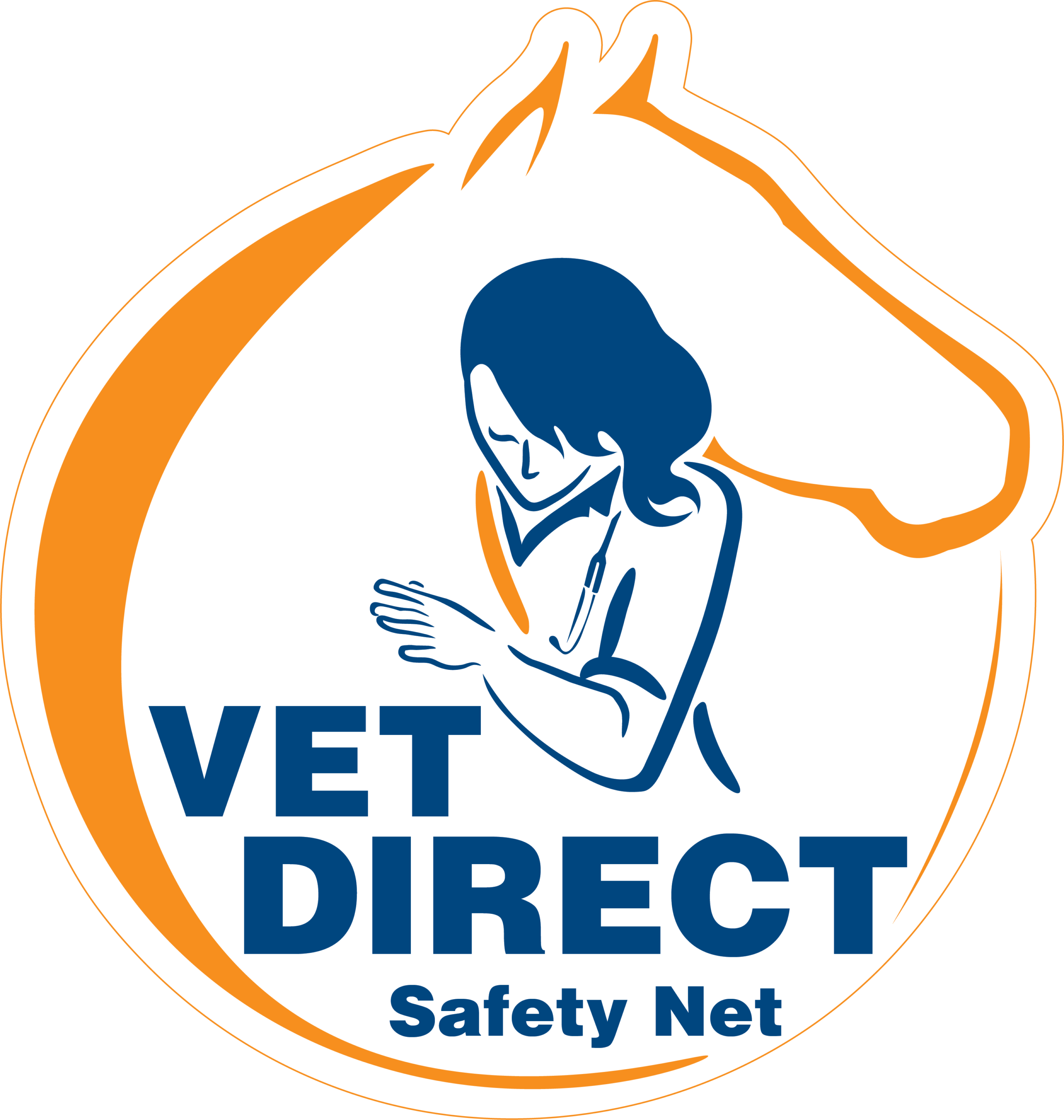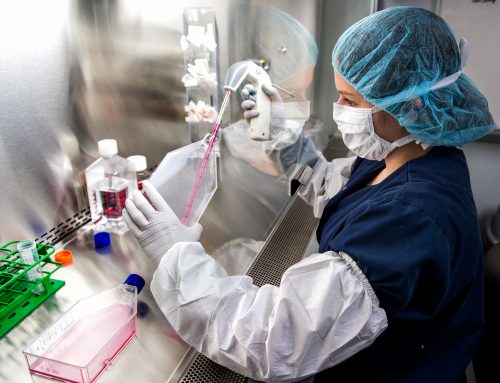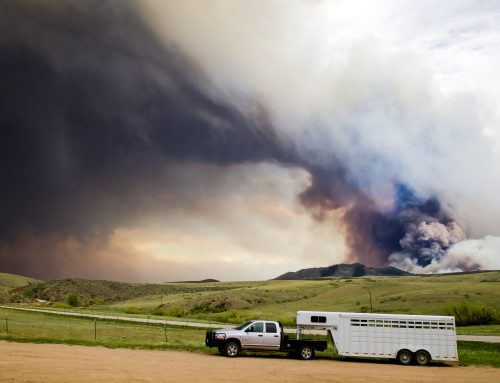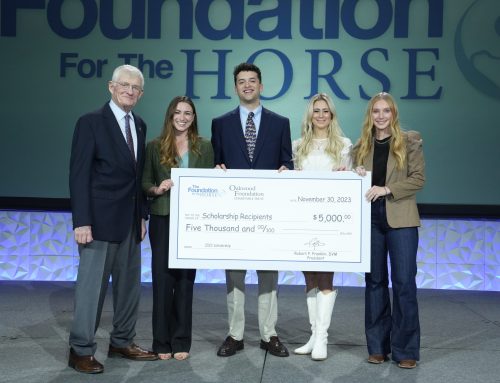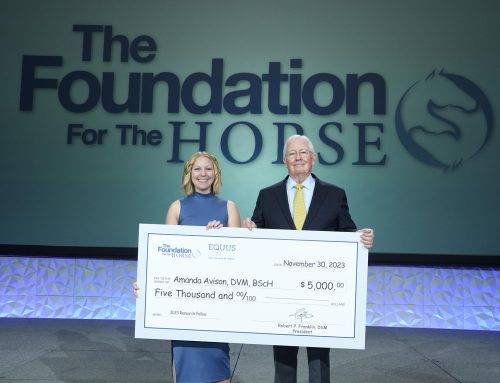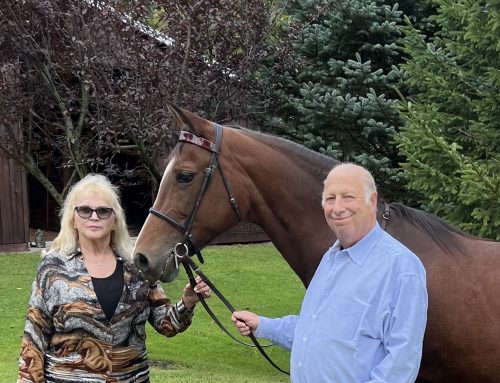A landlord in rural Kentucky when the COVID-19 pandemic emerged in early 2020, horse owner Kelly Seacrest soon began feeling the effects of tenants who were unable to pay their rent. The devastating loss of income and uncertainty of a return to normalcy prompted Seacrest to return home to Massachusetts with her son and her horses—Trixie and Dreamer.
While struggling to get back on her feet financially, Seacrest established herself as a client of Dr. Sara Cook, co-owner of Black Brook Veterinary Services in Hamilton, Mass. In December, during a follow-up visit after removal of a suspected squamous cell carcinoma from Trixie, Seacrest mentioned the mare had been squinting her left eye on and off for about two weeks. Upon examination, Dr. Cook suspected a corneal stromal abscess, subsequently confirmed via email consult with ophthalmologist Dr. Alison Clode.
The prescribed treatment regimen involved topical application of Terramycin three times a day. Although Seacrest diligently treated the mare, it wasn’t long before Trixie expressed her displeasure and Seacrest struggled to get the medication in her eye. Dr. Cook recommended an eye lavage catheter so Ofloxacin and Voriconazole could be administered for two weeks, but the financial ramifications intimidated Seacrest. So the duo began searching for a way to ease some of the financial burden so that Trixie could get the help she needed.
Dr. Cook had learned of the Vet Direct Safety Net program from her office manager, Kim Maguy, who had seen the program in an AAEP email and suggested the clinic sign up. Designed to reduce the number of horses relinquished or sent to auction, the program reimburses practices for up to $600 worth of free veterinary services per horse to assist owners in need with emergency stabilization procedures, euthanasia or disposal.
Following a speedy onboarding process—just a 20-minute Zoom call—Dr. Cook and her team recognized Trixie as a prime case for funding and knew exactly which issues would and would not be covered by the program, which is administered by The Foundation for the Horse and the ASPCA.
“Kelly consistently showed her commitment in terms of diligence in medicating the horse, keeping her inside when necessary, and following through with recommendations to ensure her recovery,” Dr. Cook said as to why she felt Seacrest was an ideal candidate for the program.
Dr. Cook placed the catheter and then contacted The Foundation for the Horse with the invoice and an explanation of medical treatment. She soon received the $600 reimbursement and established a payment plan for Seacrest. Trixie has since made a full recovery, and Seacrest recently paid off the remainder of her bill
“Although we live in a relatively wealthy area, not all horse owners have a large financial cushion to fall back on when things get difficult,” said Dr. Cook. “This can result in deferred care, worsening medical problems or even the decision to give up the horse. As a vet, it is a relief to me to be able to offer the support of a program like Vet Direct in certain cases, knowing the horse can get the care it needs in a timely manner.”
If you are an AAEP-member veterinarian in the U.S. with clients who potentially could struggle to pay for veterinary care, put yourself in a position to help by enrolling in Vet Direct Safety Net. Sign up or learn more by visiting aaep.org/vet-direct-safety-net or contacting Sue Stivers at sstivers@aaep.org.

